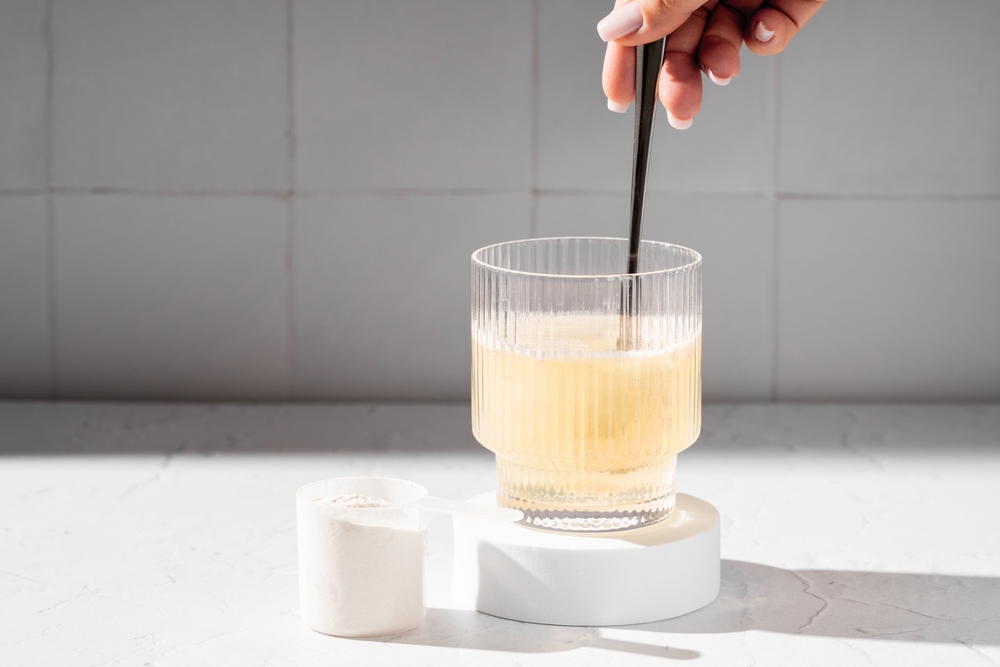Collagen Supplements: An Overlooked Tool for Post-Bariatric Healing

Post-Bariatric Healing
Written by Julia Champagne, RD, MSc
If you’ve undergone bariatric surgery, or are preparing to, you know that nutrition plays a huge role in your recovery, long-term health, and overall success. While most patients are familiar with the importance of protein, vitamins, and hydration, one often-overlooked supplement can be a game-changer: collagen.
Collagen is the most abundant protein in your body. It helps form your skin, bones, joints, muscles, and connective tissue. But after bariatric surgery, your ability to consume and absorb enough high-quality protein can be compromised, and that includes collagen-forming amino acids.
Here’s why collagen supplementation might deserve a place in your daily routine post-op.
1. Supporting Skin Elasticity During Rapid Weight Loss
Rapid weight loss often leads to loose or sagging skin, especially around the arms, abdomen, and thighs. While some skin changes are inevitable, supporting your body’s collagen levels may help maintain skin elasticity and hydration during this transition.
Studies suggest that daily collagen peptides can:
- Improve skin elasticity
- Boost hydration
- Reduce the appearance of wrinkles and fine lines
Although supplements won’t prevent loose skin entirely, they may help your skin respond better to weight changes and improve its overall texture and appearance.
2. Promoting Joint Health and Mobility
As body weight drops, many bariatric patients become more active which is great for health but can sometimes strain joints, especially if there’s a history of arthritis or inflammation.
Collagen helps support joint cartilage, which cushions the bones and allows for smooth, pain-free movement. Research has shown that collagen supplements may:
- Reduce joint discomfort with activity
- Improve mobility and flexibility
- Decrease inflammation
This can make it easier to stay active and build a sustainable exercise routine post-surgery.
3. Helping Maintain Lean Muscle Mass
Muscle loss is common after bariatric surgery due to restricted calorie and protein intake. While collagen is not a complete protein, it contains key amino acids (like glycine, proline, and hydroxyproline) that support muscle tissue, ligaments, and recovery, especially when combined with resistance training. This means that adding collagen powder to your foods adds grams of protein as well.
One 10g serving of collagen powder = 9 grams of protein
If you’re working to preserve or build muscle after surgery, collagen may complement your protein intake and help support tissue repair.
4. Supporting Hair, Skin, and Nail Health
Hair thinning is a common concern after bariatric surgery, often due to stress, nutrient deficiencies, or rapid weight loss. While collagen won’t reverse hair loss on its own, it may support keratin production, which strengthens hair and nails.
Many patients also report:
- Stronger, faster-growing nails
- Improved skin texture
- Less brittle hair over time
How to Add Collagen To Your Daily Routine?
- Choose hydrolyzed collagen peptides
- Dosage: 5–10 grams per day
- Pair it with vitamin C to help with collagen synthesis in the body
- Collagen powder is virtually tasteless and dissolves easily into coffee, smoothies, yogurt, oatmeal, and other foods
Bottom Line
Collagen supplements won’t replace a balanced diet or your bariatric vitamins, but they can be a valuable tool for supporting your recovery, movement, and appearance post-op. Always check with your health care team before adding new supplements, especially right after surgery.
.svg)






